With our Silk Road excursion coming to a close in Samarqand, we hopped back to Tashkent for the third (and last!) time. We had arrived here six weeks ago, total strangers to the region. Now, Tashkent felt extremely familiar and we retraced our steps back to the familiar guesthouse through the familiar metro with measured confidence, taking police checks on baggage and passport in our stride. We even spotted a French couple who were on the same metro train as us and guessed their intentions and escorted them to the guesthouse. We did not charge any commission for this additional service.
Given our earlier fears about vegetarian food in the region, we felt that we had done much better, thanks to our hosts in Tajikistan, Kyrgyzstan, Kazakhstan and Uzbekistan. Barring the few tense encounters with the law and a bizarre visit to our room from a Shymkent Hotel doorman demanding advance payment within minutes of our checking in, our interactions with the 'Stanis have been extremely heartwarming. We could have done better with the various languages and Russian, however. As Lee Van Cleef puts it in "For a few dollars more", maybe next time!
Apart from the impromptu Dutar recital we got from our guesthouse owner in Tashkent, we also got an introduction to Uzbek classical music at the Museum of Music in Khiva. The hostess at the museum played a few samples and we were inrigued by the similarity with Indian classical music. Some samples from a Shashmakom album sounded like Hindustani classical music and some from an album titled Sadollari (featuring the string instrument Tambur) evoked the South Indian Veena. It would be an interesting exercise to delve into the genealogy of this music.
Having decided to exclude Turkmenistan from our plans for this trip, our next destination is going to be Baku, Azerbaijan on the Caspian coast. We were excited about beginning a new phase on journey having had such memorable times in the four 'Stans. We came into the region by plane into Tashkent and we leave it from the same venue by the same mode of travel with the same carrier. Fortunately, they fly modern aircraft these days but one can still enjoy the comical sight of the retired Ilyushins on the tarmac in Tashkent airport.
Air travel introduces a discrete component in an otherwise smooth set of transitions. It also involves going through tedious security procedures that require buffer time. It is expensive in itself and also lands you in airports that are usually miles away from the city where you want to go. Sure, you are not likely to encounter stampedes in your immigration queue (we have seen some that are close). However, it does bring with it one huge advantage. If you are lucky to get a window seat on a daytime flight on a clear day, you could get views of the planet that are unsurpassable. We've had such moments before when flying past Mount Everest, over Yosemite National Park etc. How would you like to get a view of the Caspian Sea from above?
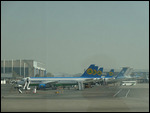
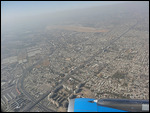
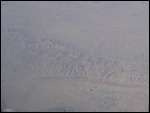
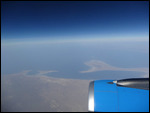


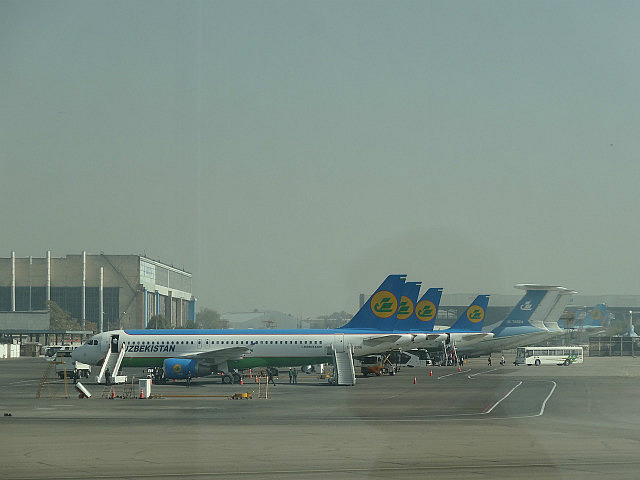
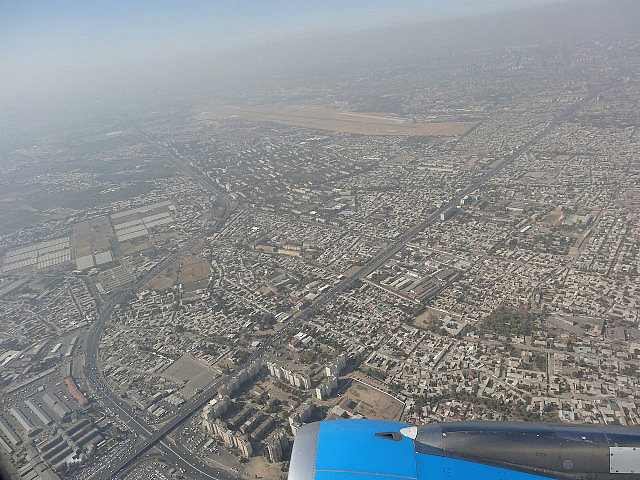

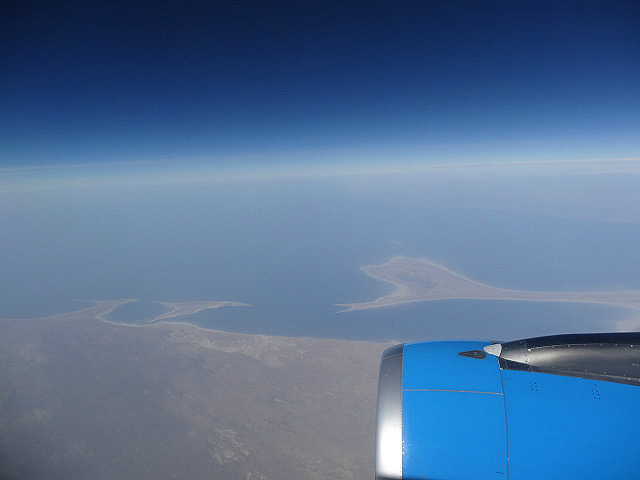

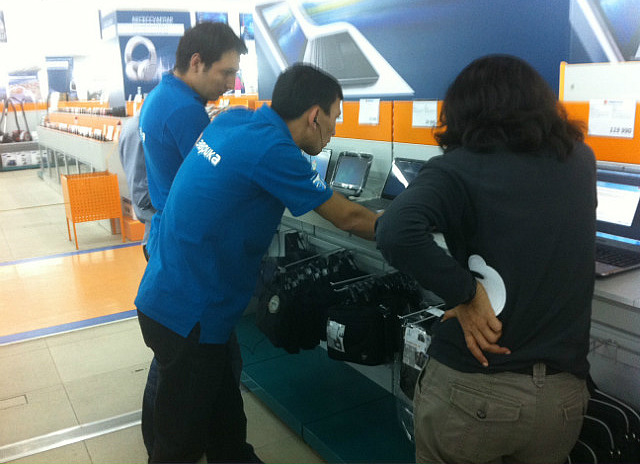
Comments